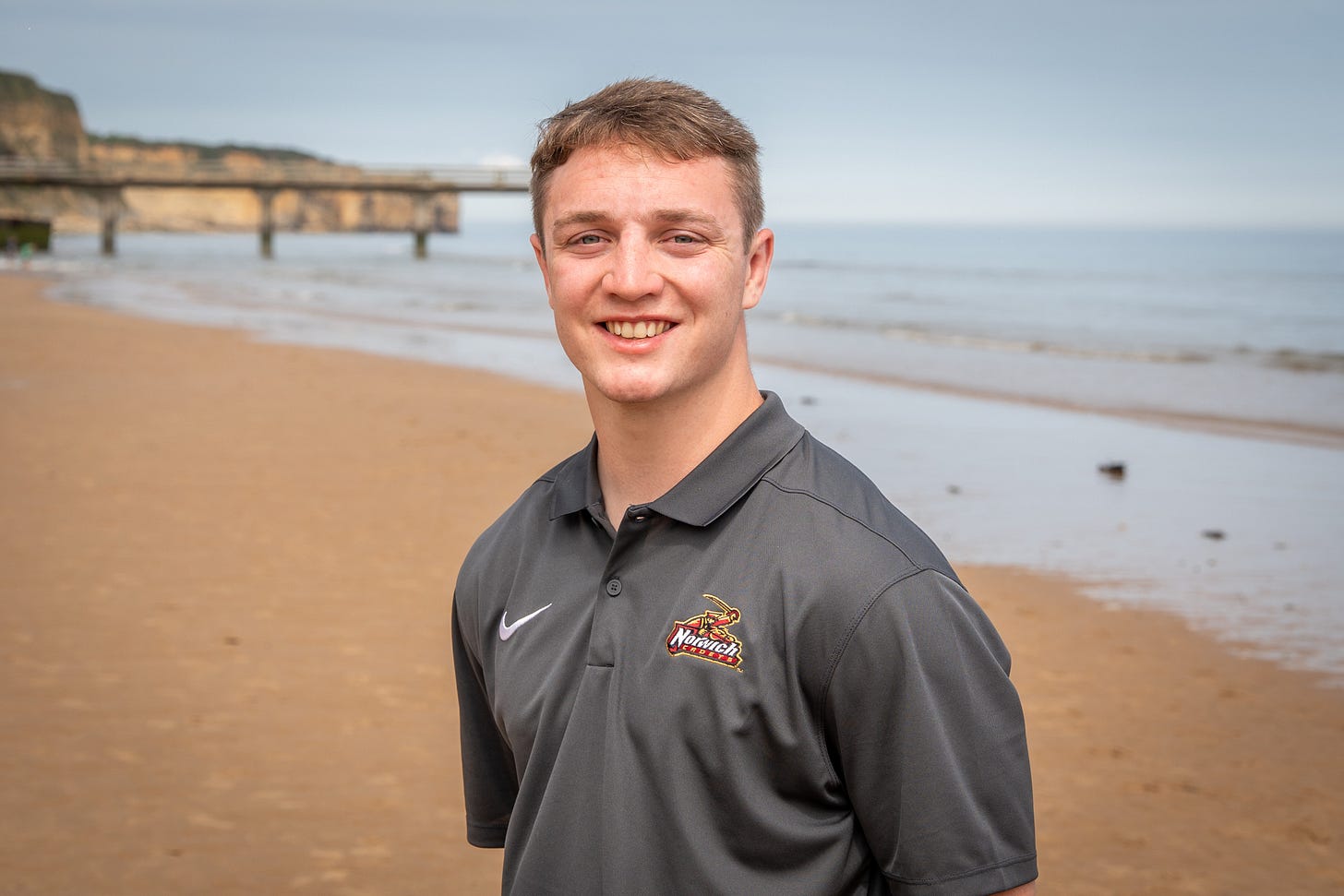
Between May 29th and June 9th, several Norwich University students participated in the Israel Strategy & Policy tour (I-SAP), a unique program hosted by the MirYam Institute. Tailored for future officers of the U.S. Armed Forces, currently enrolled in U.S. military academies, I-SAP brings cadets of the US Army, Navy, Air Force and Marine Corps on a two day visit to Poland where they visit sites including the Warsaw Ghetto and Auschwitz-Birkenau. Immediately thereafter, I-SAP delegates travel onwards to Israel for a 12 day tour that criss-crosses the entire country.
I-SAP cadets are briefed by elected officials, generals, ambassadors, media analysts, jurists, ministers and more as they learn about Israel, its place among the nations, and its relationship with the United States.
I-SAP is designed to be an experience that will escort participants throughout their military careers and beyond.
Carver Moyer, c/LTC 2nd Battalion Commander, Army ROTC, Class of 2026
I had the opportunity of a lifetime during my time in France and Poland. I was able to experience the wisdom and knowledge of many influential speakers and esteemed veterans of the United States Military. I had the opportunity to meet Benjamin Anthony and Rozita Pnini, the founders of the MirYam Institute. The MirYam Insititute is a forum for the state of Israel and its current challenges. This institute provided Cadets from the United States Military Academy, Virginia Military Insitute, and Norwich University the expertise needed to become effective leaders in the United States Military. Alongside this, we had the experience of meeting two individuals from the Israeli Defense Force, Borris Shtonda and Sidonie Pearl, who served in/near the Gaza Strip against the terrorist group Hamas. The staple of this trip was rooted in the threat of Hamas and present-day Anti-Semitism. Our two tour guides, Ernest, a Colonel in the U.S. Army, and Bentsi, who also served in the IDF, formed the branches of this experience, and their knowledge has carried on to me and what I know about the leaders during D-Day and WWII. And I would like to personally thank Colonel Grey and Sergeant Major Sours, who were attached to VMI, and Dr. Morris, who had great wisdom to share during this experience.
While in France, we visited Normandy and the five beaches that were stormed during D-Day. These beaches include Juno, Sword, Gold, Utah, and Omaha. We also visited the Pegasus Bridge, Pointe de Hoc, and Ste Mere Eglise, which all influenced my experience. As someone from a more scientific background, I found myself even more necessary to be on this trip due to the less history I need to learn in my curriculum. At each of these places, I felt the sheer amount of pain and heaviness our ancestors had to endure eighty-one years ago for the freedom we welcome today. For someone to be present in these places is nothing compared to learning about it in a classroom or reading up on its significance; it gives a profound sense of Patriotism and thankfulness for the sacrifices these Soldiers have made. As a future 2nd Lieutenant in the United States Army, I can place these experiences into our current missions for our people.
Following France, we traveled to Poland, where we learned about the Holocaust and its significance and profoundness on the Jewish people and other individuals who were also placed in the atrocity. Words cannot describe such mass graves as Treblinka, Majdanek, and Auschwitz; however, after further reflection, the phrase that comes to mind is: “Never Again.” This phrase will carry on through my actions as a future Officer and depicts the heaviness of these places. I also had the experience of seeing the Jewish Ghetto and the confined space that they had to live in, in Krakow, Poland. During the tour, I had the opportunity to give a brief to the group on Fritz Haber, who was responsible for creating Zyklon B, the gas that was used in the extermination chambers. By visiting these places, they have been cemented into my mind, and I have seen what humanity can do. Never again.
I have gained a sense of gratitude following this experience, to enjoy the little things and to carry on the message to those around me—the message of putting an end to Anti-Semitism and preventing such atrocities from occurring. I have also gained many friendships along the way, friends from West Point and VMI, who I might see in the future during my time in the Army. Future Norwich Cadets must have this opportunity, like I have, to learn more about the past, see the world, and create connections that will last a lifetime. “Those who cannot remember the past are condemned to repeat it.” -George Santayana




C/2nd LT Dalton Kaylor, Class of 2026
During my time with the MirYam Institute we visited two countries France and Poland the Miryam Institute offered a unique lens through which to examine warfare, moral leadership, and operational execution. Engaging directly with the sites of the D-Day landings in Normandy and the concentration camps of Poland provided more than historical insight—it offered a platform for critical analysis of leadership under extreme conditions. As an officer, this experience significantly sharpened my understanding of the responsibilities of command, the ethical dimensions of military service, and the long-term consequences of decision-making at both tactical, strategic, moral levels.
In Normandy, the Allied invasion of June 6, 1944, was not only a turning point in World War II, but a case study in joint operations, multinational coordination, and mission-focused leadership. Analyzing the operational complexities of the beach landings—the logistical hurdles, intelligence planning, and the synchronization of land, sea, and air assets—highlighted the indispensable value of deliberate preparation and decentralized execution. These are not abstract military concepts; they are practical leadership tools. Observing the terrain firsthand emphasized how terrain analysis, initiative at the junior leader level, and adaptive decision-making under fire were decisive factors in overcoming entrenched German defenses.
From a leadership standpoint, the D-Day operations demonstrated the power of intent-driven command. Officers were required to make rapid decisions in fluid, chaotic environments with almost no information. This parallels the modern battlespace, where officers must enable subordinates to act with clarity and autonomy within the commander’s intent. Normandy reinforced for me the necessity of building trust, communicating vision effectively, and allowing for boots on the ground to make decisions without heavy handed oversite. These are elements I now understand more actively and wish to employ in my own leadership development as well as mentorship.
The second half of the trip, centered on Poland’s concentration and death camps, demanded a different kind of analysis—one rooted in moral and ethical leadership the consequences of institutional failure. Visiting Auschwitz, Treblinka, and other sites of mass atrocity illustrated not a failure of capability, but a failure of conscience. This compelled me to reflect critically on the nature of obedience, the dangers of moral disengagement, and the ethical obligations of those in uniform. As an officer, I am charged not only with operational success but with upholding the values of the constitution as well as the Navy. What became clear in Poland is that military professionalism without a moral compass can enable unimaginable evil.
Analyzing this through a leadership lens, the Holocaust demonstrates the catastrophic impact of unchecked authority and the perversion of bureaucratic efficiency for destructive ends. It underscored the importance of cultivating ethical reasoning, not as an abstract virtue, but as a core competency in leadership training. This experience made me reevaluate how I frame ethical dilemmas, how I challenge groupthink, and how I encourage moral courage within my team. In essence, it reinforced the idea that technical proficiency must be paired with ethical accountability to truly define effective leadership.
The Miryam Institute’s role in framing this journey was also instructive. As an Israeli organization that emphasizes strategic resilience, historical memory, and moral clarity, it provided not just logistical support but intellectual framing. Their facilitation encouraged analytical thinking around identity, responsibility, and defense policy—areas directly relevant to my professional development.
This experience did not just make me more informed—it made me more analytical in my approach to leadership. Normandy taught me about operational excellence and mission command. Poland taught me about ethical vigilance and the human cost of institutional failure. Both experiences reinforced that effectiveness as an officer demands more than technical skill demands the capacity to think critically, act morally, and lead with purpose under pressure. And for that I thank the MirYam Institute for the journey and for my own personal development.
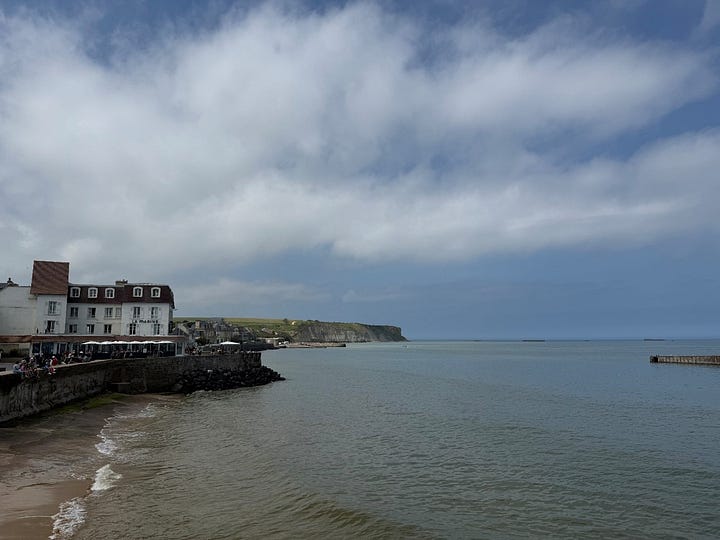
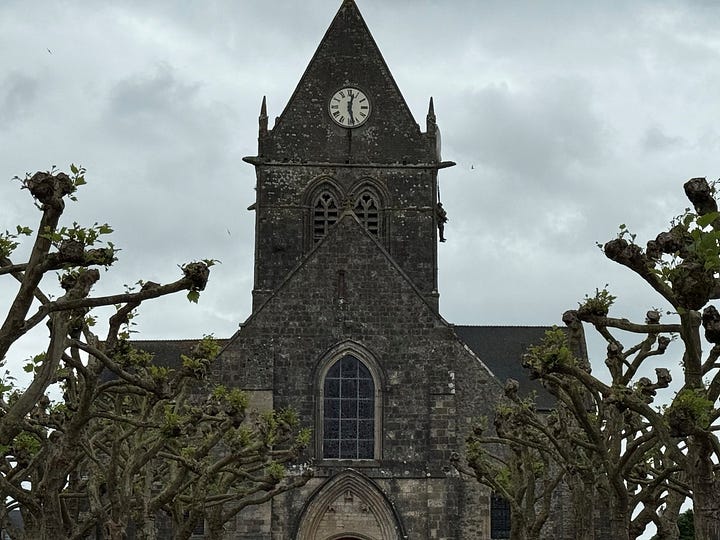
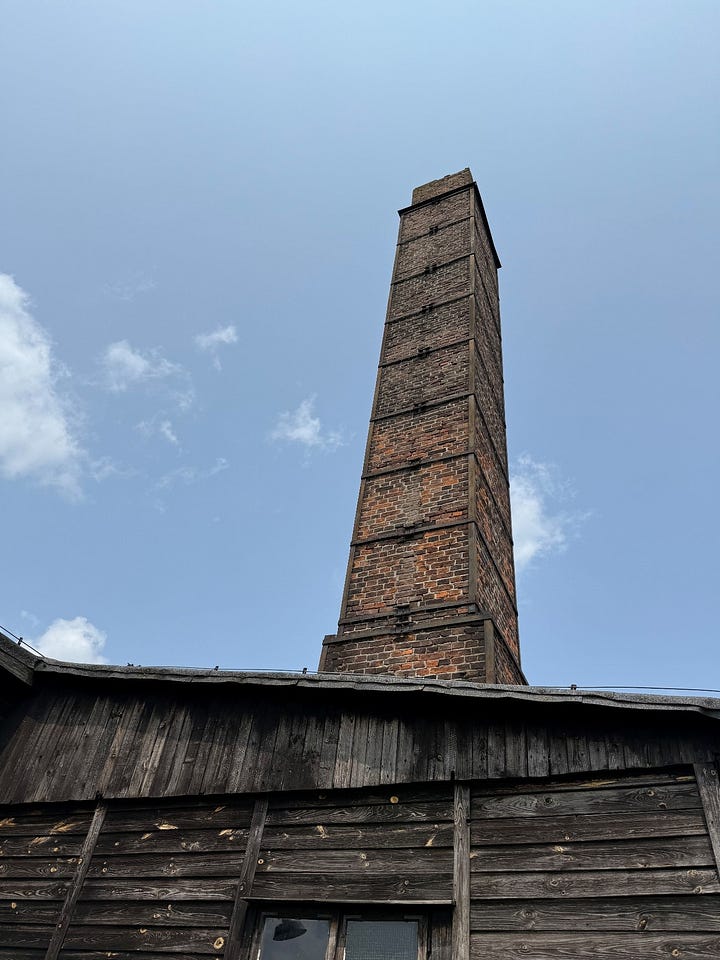
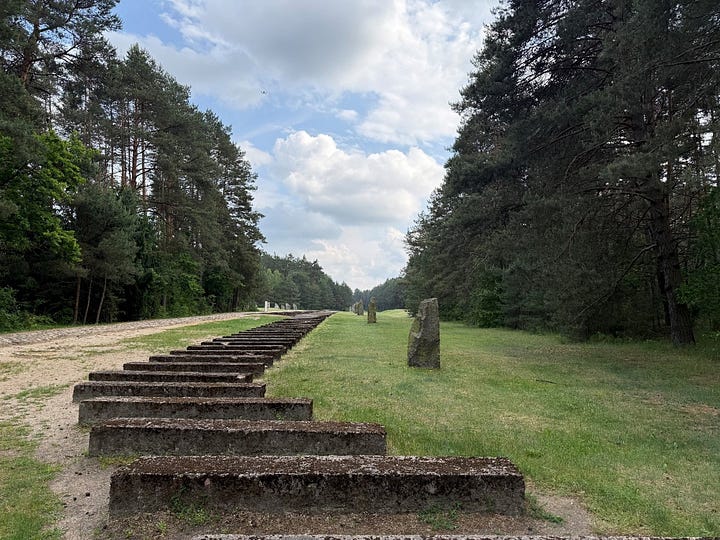
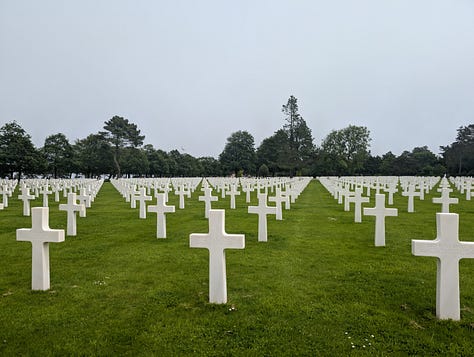
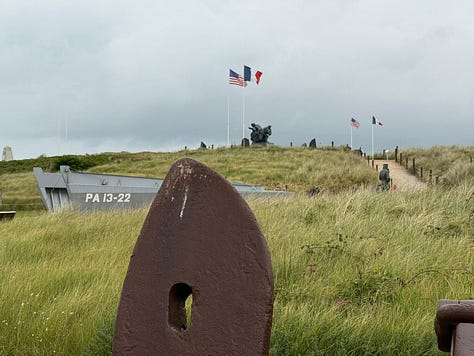

C/1LT Kristin Sanderson
With the support of the MirYam Institute, I had the opportunity to spend several days in both France and Poland with fellow cadets from VMI and West Point. In France we focused on Normandy, the D-Day invasions, and the subsequent Battle of Normandy. I toured most of the landing beaches and important paratrooper landing sites and learned far more about Normandy than I thought I did. My most fond memory of my time in Normandy was getting to speak at a remembrance ceremony at the Normandy American Cemetery. The visit to the cemetery truly moved me and made me feel a more personal connection to D-Day and American history as a whole. In France, I enjoyed the local culture and cuisine while absorbing knowledge of Operation Overlord.
While in Poland, the tour turned to focus on the rise of Nazism and the Holocaust. We learned important lessons as future leaders by visiting sites such as Majdanek, Treblinka, and Auschwitz concentration/extermination camps. I feel that the true scale of the Holocaust and its horrors is not something that can be shown just in books and television and by visiting these sites we face the Holocaust in person. The experience was something humbling and deeply impressionable. Poland itself was an amazing country, with beautiful cities, friendly people, and a safe environment.
I also met amazing people on the I-SAP tour, forming bonds with cadets from other institutions as well as members of the IDF. Even though the trip did not go to Israel, I still learned a lot about the country and the geopolitics surrounding it. The conflict in Israel became more tangible to me when speaking with people who have experienced it first hand.
Overall, I learned a great deal about both history, recent events and even myself on the I-SAP tour, and hope to take these experiences with me as a future leader for the benefit of my country.




